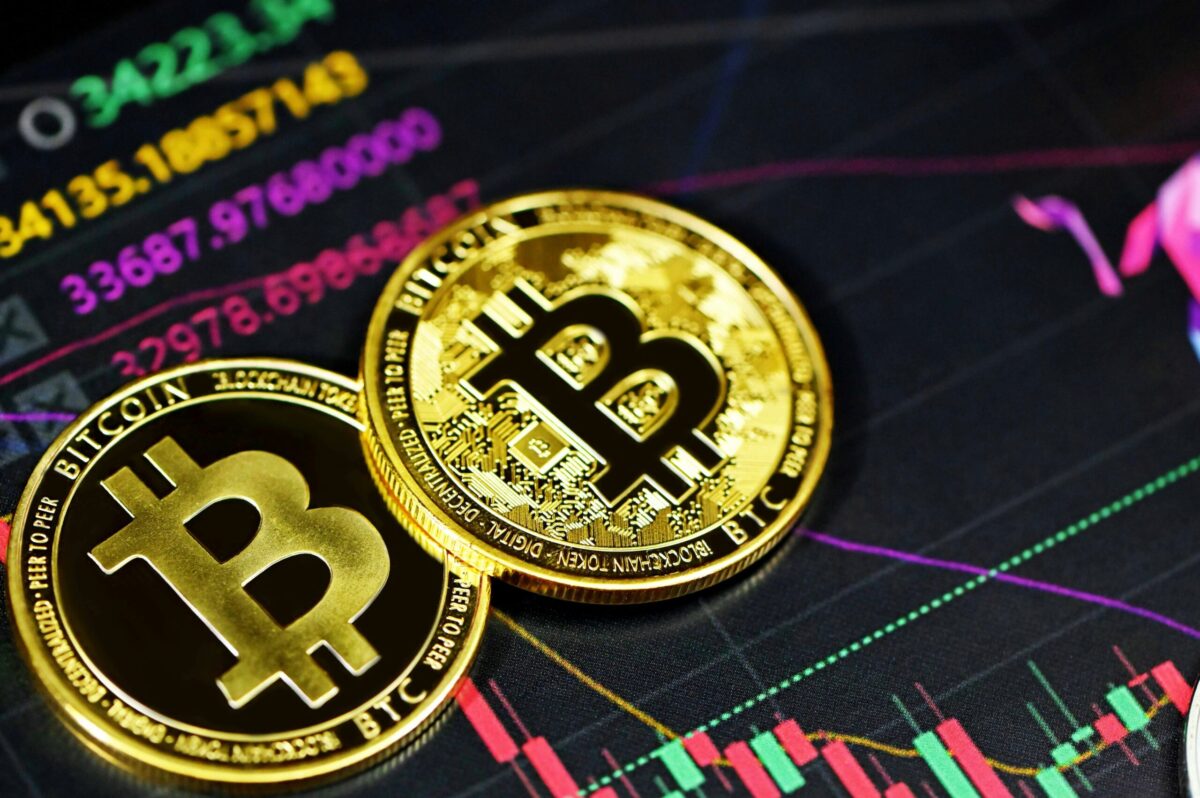GameStop, the well-known video game retailer, has officially completed a $1.5 billion convertible debt offering, with plans to use part of the proceeds to purchase Bitcoin ($BTC).
This marks a significant step in the company’s financial strategy as it moves toward embracing digital assets.
The decision comes after GameStop recently updated its investment policy to include Bitcoin as an acceptable treasury asset.
The move draws strong parallels with Strategy (formerly known as MicroStrategy), a business intelligence firm that pioneered the concept of holding Bitcoin as a corporate reserve asset.
Since 2020, Strategy has accumulated over 528,000 $BTC, currently valued at over $45 billion.
GameStop CEO, Ryan Cohen, has shown interest in this strategy, even sharing a photo with MicroStrategy’s Michael Saylor, one of Bitcoin’s most vocal corporate advocates.
However, despite initial excitement about the company’s shift toward Bitcoin, investors have responded with mixed reactions.
GameStop’s stock initially saw a boost following the announcement but later fell sharply after the company confirmed it would raise debt to finance its Bitcoin acquisition.
The stock has declined nearly 22% in the past week, although it did see modest gains on Tuesday following the US Securities and Exchange Commission (SEC) filing.
$1.5B convertible notes sale
On Tuesday, GameStop finalised its convertible debt offering, raising $1.5 billion from investors. The initial target for the offering was $1.3 billion, but due to high demand, the company sold an additional $200 million in notes, bringing the total amount raised to $1.5 billion.
After deducting expenses and discounts for the initial purchasers, GameStop ended up with approximately $1.48 billion in net proceeds.
According to a filing with the SEC, GameStop has stated that the funds will be used for “general corporate purposes, including the acquisition of Bitcoin”.
The notes will mature on 1 April 2030, meaning that unless converted, the company will need to repay the debt by that date.
Convertible notes are a type of debt that can be converted into company shares at a later date. GameStop’s notes will have an initial conversion rate of 33 shares per $1,000 of principal amount.
This means that investors who purchased these notes have the option to convert them into GameStop stock at a predetermined rate, potentially benefiting if the company’s stock price rises.
This new financing strategy signals a major shift in GameStop’s approach to managing its financial reserves. The company had already signaled its interest in cryptocurrency by adding Bitcoin to its list of acceptable treasury assets before launching this debt sale.
Now, it appears GameStop is taking further steps toward integrating digital assets into its business.
Following Strategy’s Bitcoin strategy
GameStop’s move to buy Bitcoin closely follows the strategy adopted by Strategy, which has been aggressively accumulating Bitcoin since 2020.
Strategy, founded by Michael Saylor, has used a combination of equity and debt offerings to fund its Bitcoin purchases, becoming the largest corporate holder of Bitcoin in the world.
Today, Strategy holds over 528,000 $BTC, valued at more than $45 billion at current market prices.
Saylor has repeatedly argued that Bitcoin is a better store of value than traditional currencies, and his company has continued to expand its Bitcoin holdings, even during volatile market conditions.
GameStop CEO appears to be influenced by this approach. In February, Cohen shared a photo of himself with Michael Saylor, further fuelling speculation that GameStop might follow a similar path. With this latest debt offering, GameStop is now taking a major step in that direction.
However, unlike Strategy, GameStop has not yet disclosed how much Bitcoin it plans to buy or when the purchases will take place. The company has only confirmed that Bitcoin is now part of its investment strategy.
Investors will be watching closely to see whether GameStop adopts a long-term accumulation strategy like Strategy or takes a more cautious approach.
Future implications
GameStop’s Bitcoin move initially excited investors, leading to a sharp rise in GME stock prices when the plan was first announced. However, enthusiasm quickly faded when it became clear that the company would be raising more debt to finance the purchase.
Over the past week, GameStop shares have fallen nearly 22%, reflecting concerns among some investors about the company’s increasing debt burden.
On Tuesday, the stock showed slight signs of recovery, closing 1.3% higher at $22.61. After trading hours, GameStop gained another 1.4%, likely due to the SEC filing confirming its Bitcoin acquisition plans.
This mixed response suggests that while some investors see Bitcoin as a positive long-term move, others are worried about GameStop’s financial stability.
GameStop’s decision to enter the cryptocurrency space also comes at a time when other public companies are increasing their Bitcoin holdings.
For example, Metaplanet, a Japanese investment firm, recently purchased 160 $BTC for $13.3 million, bringing its total holdings to 4,206 $BTC. Meanwhile, MARA Holdings, a Bitcoin mining company, is preparing to raise $2 billion to buy more Bitcoin.
The growing trend of companies investing in Bitcoin reserves suggests that businesses are beginning to see cryptocurrency as a strategic asset. Some corporations are looking at Bitcoin as a hedge against inflation, while others view it as a way to diversify their financial reserves.
GameStop’s bold move into Bitcoin also represents an effort to modernise its business model. The company first gained massive attention in 2021 during the “meme stock” phenomenon, when retail investors on Reddit drove up its stock price in a battle against Wall Street short sellers.
Since then, GameStop has been working to reinvent itself and explore new ways to generate revenue.
This is not GameStop’s first attempt at entering the crypto space. In 2022, the company launched a non-fungible tokens (NFT) marketplace and a crypto wallet for users. However, the crypto wallet was shut down in November 2023 due to regulatory uncertainty.
Now, with its decision to hold Bitcoin in its corporate treasury, GameStop is once again making a high-stakes bet on digital assets.
Bitcoin’s growing role in corporate finance
GameStop’s Bitcoin investment is part of a larger trend among public companies. More businesses are beginning to convert portions of their treasury reserves into Bitcoin, following the example set by Strategy.
Metaplanet (MTPLF) recently purchased 160 $BTC, increasing its total holdings to 4,206 $BTC. MARA Holdings, a Bitcoin mining company, is preparing a $2 billion stock offering to purchase additional Bitcoin. Meanwhile, Strategy remains the largest corporate holder of Bitcoin, with 528,000 $BTC in its treasury.
The increasing interest from public companies suggests that Bitcoin is becoming more widely accepted as a corporate asset.
Many businesses are viewing Bitcoin as a way to strengthen their balance sheets, particularly during times of economic uncertainty.
However, Bitcoin’s volatility remains a major risk. While GameStop could potentially benefit if Bitcoin prices continue to rise, it also faces the possibility of financial losses if Bitcoin’s price drops. Investors will be closely watching how the company manages this risk in the coming months.
As of now, Bitcoin is trading around $85,500, maintaining high levels after months of consistent price increases. If Bitcoin continues to gain mainstream adoption, GameStop’s investment could prove highly profitable.
However, short-term fluctuations are likely, which could impact the company’s financial position. GameStop’s decision to raise $1.5 billion and invest in Bitcoin marks a major shift in the company’s financial strategy.
By following the lead of Strategy, GameStop is positioning itself in the cryptocurrency space, a move that could pay off significantly or add more financial risk.


